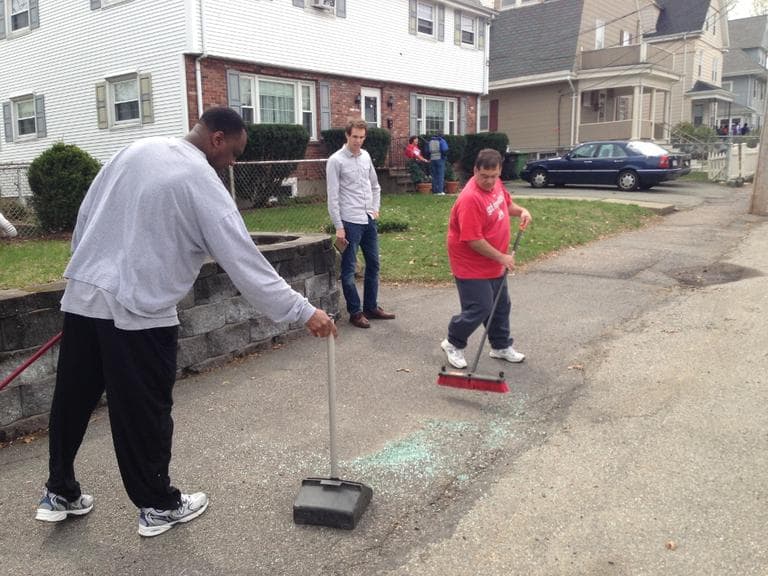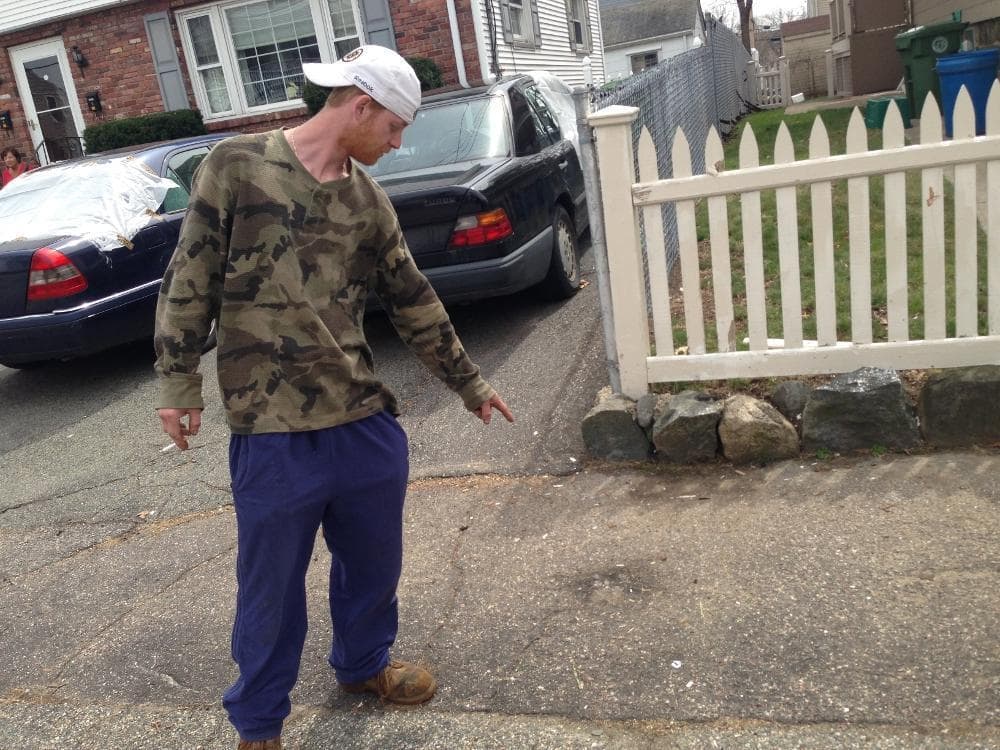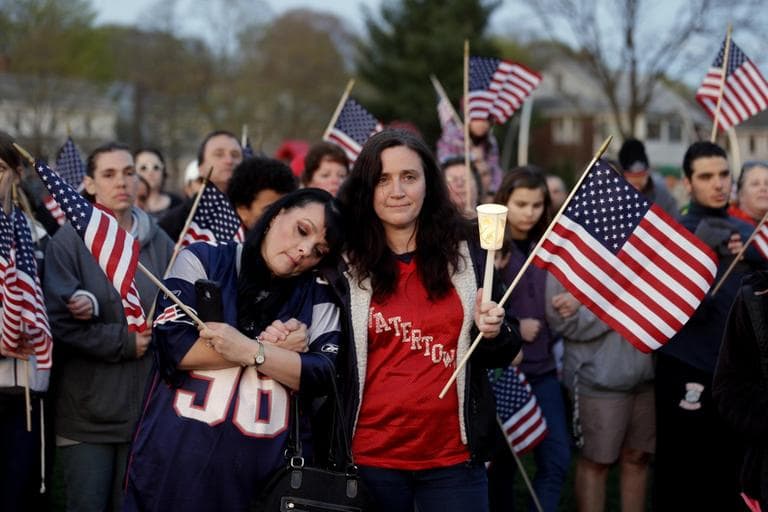Advertisement
With Bomb Suspect Now Captured, Watertown Residents Emerge, Begin Healing Process
Resume
Watertown residents emerged from their homes Saturday, the day after one of the most dramatic and traumatic days their town had ever seen.
In groups, pairs and alone, they wandered around Laurel Street, inspecting the aftermath of the violence that invaded their community over a long 24 hours. Constantly, almost helplessly, they swapped stories.
Michael Hotz and Rafael Baroukian — whose own nearby streets saw their share of action — took a look at a bloodstain that still marked the street. It's the place where Tamerlan Tsarnaev, the older of the brothers blamed for the Boston Marathon bombings, met his fate.
Michael John Doucette, whose house was directly in front of the wild scene that took place early Friday morning. said he jumped from window to window that morning. He saw transit policeman Richard Donahue go down, gravely injured. He saw a shootout between police and the older brother, and then a separate shootout with younger brother Dzhokhar.

That included the moment, Doucette said, when Dzhokhar threw a pressure-cooker bomb — like the ones that killed three at the marathon.
"He ran out of bullets, and then he pulled a bomb out and threw it at the cop. And it exploded in the air, and then that's how he got over the back fence and made it back to the SUV," Doucette said. "And it really looked like the brother sacrificed himself so the other one, the younger one, could get away. 'Cause he [the older brother] was walking right towards the cops shooting and throwing grenades or pipe bombs and then he ended up making it past them all up the street."
Doucette was tired, but clearly still had a lot of adrenaline to drain away. And he was a magnet for visitors, as he told the stories again and again — pointing out bullet holes, explosion craters and the long trail of blood where the older Tsarnaev was dragged after his younger brother ran him over during his getaway.
Doucette’s details were handed from neighbor to neighbor down the street. Laura Horn and Elana Feldman heard them. They live in the area and have known each other since they were 5 years old. This leafy street is a regular stop on their regular walks, which they were determined to resume Saturday. Horn says mingling with neighbors was helping her bring the scary, chaotic events into a manageable shape.
"When there is a traumatic experience, part of trauma is everything feels so fragmented and doesn't make sense," Horn said. "So part of the healing is to talk about it and connect and to piece things together into a narrative that makes sense just like most of our memories."
"Part of trauma is everything feels so fragmented and doesn't make sense. So part of the healing is to talk about it and connect and to piece things together into a narrative that makes sense just like most of our memories."
Watertown resident Laura Horn
"Part of what was strange: It was wonderful on Facebook and texts. I was just getting people all over the country," Feldman added. "But people were joking and stuff, and I wasn't joking. So to be able to talk to people who were actually here is really helpful."
While many focused on what the battle left behind — mounds of windshield glass from bullet-riddled cars, pavement dust where bombs had detonated — David Costa and Aaron Sanders were intently sweeping it away.
"In Watertown we take care of our own,” Costa said.” A lot of these people been living here a long time together, so we do what we have to do to survive, and let the police do what they have to do. Stay out of their way."
And while they marveled and even relaxed, Watertown residents did not forget this week’s victims. They spoke often about their sadness for the three who were killed at the marathon and for the MIT policeman who was killed on Thursday night.

This program aired on April 21, 2013.